Texas

After a video of white police officers arresting black teenagers with excessive force went viral over the weekend, the police department in McKinney, Texas, has opened a formal investigation into the incident, placing one officer on administrative leave.
The officers were responding to residents who complained about unwelcome teenagers causing a disturbance at a private community pool in the affluent Craig Ranch subdivision of McKinney, Texas.
In the video, Police Corporal Eric Casebolt is seen pushing a bikini-clad 14-year-old girl to the ground, before jamming her face down and sitting on top of her. When two boys jump up to confront the officer, he pulls out his firearm and points it at the teens.

IF YOU'RE A Christian who cares about social justice, you can’t afford to ignore Texas.
In his book Rough Country, Princeton sociologist Robert Wuthnow puts it bluntly: “Texas is America’s most powerful Bible-Belt state.” Texas has the second largest population in the country, home to more than 26 million people. In 2014, Texans led six out of 21 congressional committees. And more than half of Texans attend church at least twice monthly.
No other state has more evangelical Christians than Texas. Many national Christian media companies, parachurch ministries, and influential megachurches are based in Texas. That’s why Texas is called the Buckle of the Bible Belt: It’s the most populous, wealthy, and politically powerful part of the country where evangelical churchgoing is still a dominant force.
But what if we reimagine the Bible Belt? In 2005, Texas officially became a “majority-minority” state, where traditional minority racial or ethnic groups represent more than half of the population. A majority of Texans under 40 in the pews are people of color. This creates an opportunity: Demographic change could lead to cultural change. What if we cast a new vision for faith in Texas public life that puts working families and people of color at the center?
But demographic change will not translate automatically into cultural change. The dominant historical Bible Belt narrative has influenced and shaped the identities of all Texas Christians, including in the African-American and Latino faith communities.

The U.S. Supreme Court is now weighing arguments in the same-sex marriage case it heard on April 28 that could lead to a landmark decision requiring all states to acknowledge the unions.
But don’t count Texas out without a fight.
State lawmakers are considering at least five bills designed to block same-sex marriages, which are currently illegal in the state, and some state leaders say they’ll battle to bar the unions regardless of any Supreme Court decision.

How does this kind of mentality take hold of a state of nearly 30 million, at least to the point that the governor himself would take official action?
One word: fear. Actually two words: fear and ignorance.
Though it comes off as cartoonish and ridiculous to the typical onlooker, fear and ignorance are, in fact, powerful tools. And using fear based on a broadly shared perception — regardless of actual evidence — is something all too familiar to modern-day Christianity in the United States as well. And the reason it hangs around like heartburn after a double bean burrito is because it works.
Here’s how.

Pamela Geller is good at getting attention.
She’s a celebrity blogger and fiery activist who founded the American Freedom Defense Initiative, which describes itself as a human rights organization that defends freedom of speech by speaking out against global jihad and Islamic supremacists. She runs a sister organization called Stop Islamization of America.
The groups are known for controversial activism against Islam.

Borders have been crossed, eyes have been opened, and deeper relationships have been formed. All has been made possible — in the most surprising ways — by the active presence of the Spirit. The crossing of relational borders and the forging of new relationships continues to be enabled by the movement of the Spirit.
The only task of the people is to be open enough to perceive and respond to its prompting.
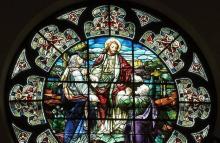
For the second time in as many months, a state court has sided with a group of breakaway Episcopalians, ruling that they can keep their property after leaving the national church in 2008 over sharp differences on homosexuality and the authority of Scripture.
Judge John P. Chupp of the 141st District Court in Tarrant County, Texas, ruled March 2 that more than 60 parishes in greater Fort Worth can retain their property and remain independent of the Episcopal Church.
“We are grateful for the ruling in our favor,”said Bishop Jack Iker, the former Episcopal bishop of Fort Worth who’s now affiliated with the Anglican Church in North America, which formed in 2009 as a rival to the Episcopal Church. “It’s clear that both church laws and Texas laws have been rightly applied to this dispute.”
While still a part of the Episcopal Church, Iker was a leader of the church’s small conservative wing that opposed the 2003 consecration of an openly gay bishop and blessings for same-sex unions. He’s also criticized the theology of Presiding Bishop Katharine Jefferts Schori as unorthodox, and he refers women seeking ordination to a neighboring diocese.

The Blood of Christ will not be offered during Mass. The Host will be placed in the hands, not on the tongue. And the faithful should not hold hands while reciting the “Our Father.”
These are but a few of the guidelines the Diocese of Fort Worth — not far from the Dallas hospital where three Ebola cases have been diagnosed — has sent to its parishes to calm fears about the deadly disease and to prevent the spread of flu.
While the diocese is perhaps the first in the U.S. to send around such a memo thanks in part to Ebola, such restrictions are common during flu season in Catholic and other churches that offer Communion.
“It’s the same guidelines we have used in past years,” said Pat Svacina, communications director for the Diocese of Fort Worth. “This is just a normal thing. There is no panic whatsoever.”
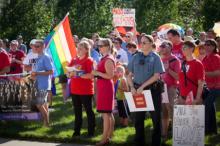
The Supreme Court’s decision to sit out the legal battle over same-sex marriage will — for now, at least — leave the future of laws prohibiting gays and lesbians from marrying in the hands of lower state and federal court judges. But it also almost certainly means the couples challenging those laws are more likely to win in the end.
The court said Oct. 6 that it would not hear appeals from five states whose same-sex marriage bans had been invalidated by lower federal courts. The decision, issued without explanation, will likely lead to recognition of gay marriages in 11 more states. It also allows an avalanche of legal challenges to the remaining bans to keep going forward in state and federal courts, where gay and lesbian couples have overwhelmingly prevailed.
The court’s decision leaves unchanged 20 state laws blocking same-sex unions. Each is already under legal attack, facing challenges in state or federal court, and sometimes both. Challenges to marriage bans already have reached a handful of state appeals courts and the federal appeals courts for the 5th, 6th, 9th and 11th circuits.
Some of those judges had been waiting to see what the Supreme Court would do. The court’s instruction Oct 6. was: Proceed.
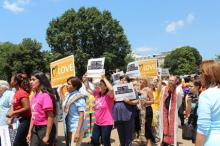
In the face of an imploding immigration system, an exploding political debate and a deadlock on reform in Washington, it was religious leaders who rallied to form a humanitarian response to the surge of unaccompanied children crossing the border to the United States this summer.
The number of migrants crossing the border began its steady rise in 2011, but it escaped the Obama administration’s notice until spring, when the rise became a wave.
By September, 66,127 unaccompanied children and 66,142 Salvadoran, Guatemalan and Honduran families had crossed into the Southwest, mostly into the Rio Grande Valley. The flood contributed to a backlog in U.S. immigration courts of nearly 400,000 cases.
Nowhere was the religious leadership more apparent than in McAllen, Texas, where churches and local government forged an effective and compassionate response to the crisis.

This new hymn is inspired by the crisis in Central America that has caused over 70,000 children to take the dangerous journey to the United States in recent months. Carolyn Winfrey Gillette has led many mission trips to Honduras for the past sixteen years. The brother of a child that Carolyn sponsored in Honduras was recently killed there.
The hymn’s reference to “On one boy’s belt, a number carved in leather” is from a news report ("Boy's Death Draws Attention Immigration Perils") of a body of a dead child found with his brother’s phone number on his belt.
“As angry crowds are shouting, “Go away!” comes from the news reports of Americans yelling at the detained children on buses in Murrieta, California. Jim Wallis of Sojourners reflects on this incident in his powerful online essay “The Moral Failure of Immigration Reform: Are We Really Afraid Of Children?" Biblical references in the hymn are Matthew 25:31-46 and Matthew 19:14-16.
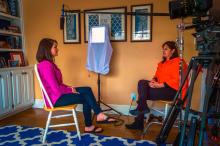
The Evangelical Immigration Table commissioned the documentary “The Stranger” to foster evangelical support for immigration reform. Linda Midgett, a graduate of evangelical Wheaton College who produced the 40-minute film, told Religion News Service she hopes ongoing screenings across the country will build a groundswell of support for legislation. On Wednesday, President Obama urged Congress to quickly approve increased funding to deal with the crisis of immigrant children flooding across the border.

Sometimes a picture says it all.
Consider the 1963 picture of fire hoses and snarling police dogs in Birmingham, Ala., used against African-American students protesting racial segregation. Surely not our civil servants at their best.
Or the 1972 picture of the little girl in North Vietnam running terrified and naked with burning skin after South Vietnamese planes accidentally dropped napalm on Trang Bang, which had been occupied by North Vietnamese troops. The world then saw how war could hurt children.
Now, in 2014, we see citizens of Murrieta, Calif., turning back buses of women and children headed for a federal processing center, a day after Mayor Alan Long told them to let the government know they opposed its decision to move recent undocumented immigrants to the local Border Patrol station.

It’s 93 degrees in Texas today. And Rev. Jeff Hood is walking 200 miles across the state. What would compel somebody to do that? He wants to end the death penalty … and he is not alone.
Rev. Jeff Hood is a Southern Baptist pastor, deeply troubled by his denomination’s stance on capital punishment. And he is troubled because he lives in the most lethal state in the U.S. Texas has had 515 executions since the reinstatement of the death penalty in 1976 – the next state in line is Oklahoma with 111. That means Texas is responsible for 37 percent of the executions in the U.S. Jeff has been a longtime organizer and board member for the Texas Coalition to Abolish the Death Penalty, a movement that is gaining some serious momentum these days.
A growing number of Texans — and Americans in general — are questioning the death penalty. A recent ABC poll shows we are over the tipping point, with more than half of Americans being against the death penalty and in favor of life in prison, putting death penalty support at a new low. For some it is the racial bias – in Texas it is not uncommon for an African American to be found guilty by an all-white jury. In fact, in considering “future dangerousness,” a criteria necessary for execution in Texas, state “experts” have argued that race is a contributing factor, essentially that someone is more likely to be violent because they are black – prompting articles like the headline story in the New York Times about Duane Buck: “Condemned to Die Because He is Black.”

GUN BARREL CITY, Texas (RNS) This place got its name because the main road was straight as a gun barrel. Today, it’s at the center of a fight over gay marriage.
That’s because weekenders Mark Phariss and Vic Holmes, who bought an A-frame house overlooking scenic Cedar Creek Lake four years ago, have become minor celebrities as the men challenging Texas’ ban on same-sex marriage.
Their battle, joined by two women whose Massachusetts marriage the Lone Star State refuses to recognize, is as unlikely as it is uphill. They’ve already won the first round in federal court in San Antonio, where District Judge Orlando Garcia ruled the state’s marriage laws against gay couples “demean their dignity for no legitimate reason.”
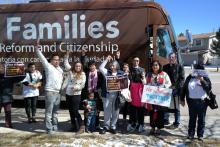
Entering its fourth week on the road, the Fast for Families bus continues its journey across the country getting closer to its final destination: Washington, D.C. on April 9.
Continuing the call for fair and humane immigration reform, fasters visited Arlington, Texas last week on the southern trail, connecting with members of Congress who shared their goals for immigration reform.
“The trickiest issue is what do you do with people that are here [undocumented]?” said Rep. Joe Barton, R-Texas, who is drafting his own immigration bill and hopes to introduce it in late spring or early summer. “We need to weed out the bad apples and send them back home or put them in jail. But the others whose only [unauthorized] act is coming to this country [undocumented], we sort them out and put them on a legalization path, and minors on a citizenship path.”
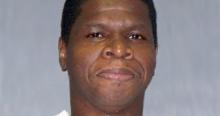
Twenty-seven evangelical Christian leaders across Texas and the United States are calling on Harris County District Attorney Devon Anderson to allow a new, fair sentencing hearing for Duane Buck. Mr. Buck is an African-American man who was condemned to death after his sentencing jury was told that he was likely to be a future danger because of his race. These evangelical Christian leaders oppose the setting of any execution date for Mr. Buck.
“We write to respectfully request that you support a new, fair sentencing hearing for death row prisoner Duane Buck,” the letter states. “Although opinions on the death penalty vary within each of our churches, we are strongly united in our view that no death sentence should be a product of racial discrimination, as it was in Mr. Buck’s case.”

In the Hebrew and Christian scriptures, there is a Psalm that proclaims: “the earth is the Lord’s and everything in it, the world, and all who live in it” (Psalm 24:1). There is no part of this world that God is not aware of, cannot lay claim to, and does not rule. Christians affirm that as people of faith we’re called to be stewards over creation, answering one day for how we’ve treated the earth.
And part of that stewardship means understanding how this world works and what it needs in order to thrive. Unfortunately the din of our political ideologies has too often drowned out the biblical calling to care for creation.
In Texas, the State Board of Education will recommend new textbooks for all its students—and because it has such a large population, what they decide could determine what students in other states learn about science. There are several ideologues submitting textbook critiques to the board and their reviews will factor into each book’s overall score and likelihood of being approved by the school board. These ideologues could block the use of textbooks that teach the reality of climate change for the whole country’s public school students.
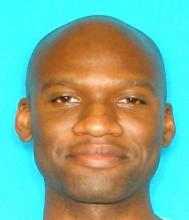
What people here are wondering today is what in the world went wrong with Aaron Alexis?
The man who shot and killed 12 people had his problems. But friends who worked and lived beside Alexis say they don’t recognize the man who went on a shooting rampage Monday at a military complex in Washington, D.C., and eventually was shot dead in a gunfight.
Alexis’ life ended in Washington, where he lived in a Residence Inn in the southwest part of the city and worked as civilian contractor for the military. But much of his story is centered in Fort Worth, where he seemed to be an easygoing guy who practiced Buddhism, meditated for hours and hung out with friends who spoke Thai, as he did.

You know, I always hedge when people ask me where I’m from, because the second I tell them I was born and raised in Texas, all kinds of stereotypes pop up in the conversation.
Yes, I can read.
No, I’m not a Republican.
Yes, I’m a Christian. No, not that kind.
No, I don’t ride horses, own a cow, oil derek or know JR Ewing personally.
And no, I do not think Texas should become its own republic.
But then, stories like this one come along that only serve to reinforce the negative biases against Texans that I try so very hard to debunk. Come on guys, work with me here!